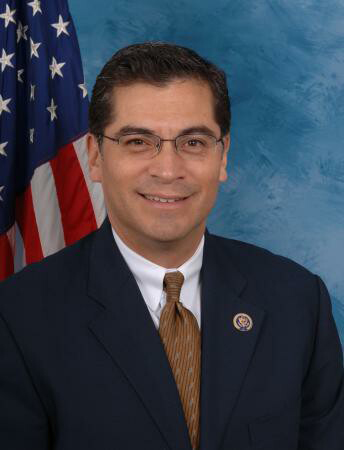Attorneys General from all 56 states and territories call for increased funding and more flexibility
August 25, 2020 - SACRAMENTO – Attorney General Xavier Becerra on Monday joined a coalition of state and territorial attorneys general representing all 50 states, the District of Columbia, and  five U.S. territories urging Congress to provide critical support and services to victims and survivors of crime by taking steps to increase the sustainability of the Crime Victims Fund (Fund). The balance of the Fund, which was established under the Victims of Crime Act of 1984 (VOCA), has decreased significantly in recent years.
five U.S. territories urging Congress to provide critical support and services to victims and survivors of crime by taking steps to increase the sustainability of the Crime Victims Fund (Fund). The balance of the Fund, which was established under the Victims of Crime Act of 1984 (VOCA), has decreased significantly in recent years.
In today’s letter, the coalition asked House Speaker Nancy Pelosi, Senate Majority Leader Mitch McConnell, House Minority Leader Kevin McCarthy, Senate Minority Leader Charles Schumer and the House and Senate Judiciary Committees to stabilize and maintain the Fund by amending VOCA, so that victims, survivors, and their families have access to the essential services they need while they try to get back on their feet in the aftermath of crime.
“The Crime Victims Fund has helped individuals and families deal with the devastating impact of crime for over 35 years,” said Attorney General Becerra. “It is our duty to ensure the Fund stays financially healthy and able to respond to the needs of victims and survivors. I, along with the coalition of state Attorneys General, urge Congress to take the necessary steps to help our states serve our residents at a time when they need vital services and support most.”
The Fund is financed by fines and penalties paid by convicted federal offenders, and is the primary funding source for victim services in all 50 states and six U.S. territories. Those services include medical care, mental health counseling, lost wages, courtroom advocacy, and temporary housing.
In recent years, deposits into the Fund have decreased due to a decline in the fines and penalties recouped from federal criminal cases while withdrawals have rapidly increased, putting the balance of the fund in jeopardy. The balance of the fund is projected to reach a ten-year low by the end of 2021 unless changes are made.
To address the growing need for victim services and increase the sustainability of the Fund, the coalition makes three recommendations:
- Redirect fines and fees from corporate deferred and non-prosecution agreements to the Fund: The Department of Justice increasingly uses deferred and non-prosecution agreements to resolve corporate misconduct. The attorneys general ask Congress to redirect these deposits to the Fund. In 2018 and 2019, recoveries resulting from these agreements were about $8 billion each year;
- Increase the rate of federal reimbursement to states for victim compensation programs: The Fund currently reimburses state programs that provide financial assistance to victims at a rate of 60 percent, the remainder usually being funded by fines and fees in state courts. The letter recommends Congress reimburse state programs at a rate of 75 percent; and
- Extend the amount of time VOCA funds can be spent: VOCA requires recipients to spend grants within a four-year period. The coalition asks Congress to extend the period of funding so that state and local organizations can better plan and predict funding for long-term services.
Joining California in this Massachusetts and Montana-led letter are state and territorial attorneys general of Alabama, Alaska, American Samoa, Arizona, Colorado, Connecticut, Delaware, the District of Columbia, Florida, Georgia, Guam, Hawaii, Idaho, Illinois, Indiana, Iowa, Kansas, Kentucky, Louisiana, Maine, Maryland, Michigan, Minnesota, Mississippi, Missouri, Nebraska, Nevada, New Hampshire, New Jersey, New Mexico, New York, North Carolina, North Dakota, Ohio, Oklahoma, Oregon, Pennsylvania, Puerto Rico, Rhode Island, South Carolina, South Dakota, Tennessee, Texas, Utah, Vermont, Virginia, the U.S. Virgin Islands, Washington, West Virginia, Wisconsin, and Wyoming. The National Association of Attorneys General (NAAG) played a key role in facilitating this letter.
A copy of the letter is available here.
Source: CA. DOJ
